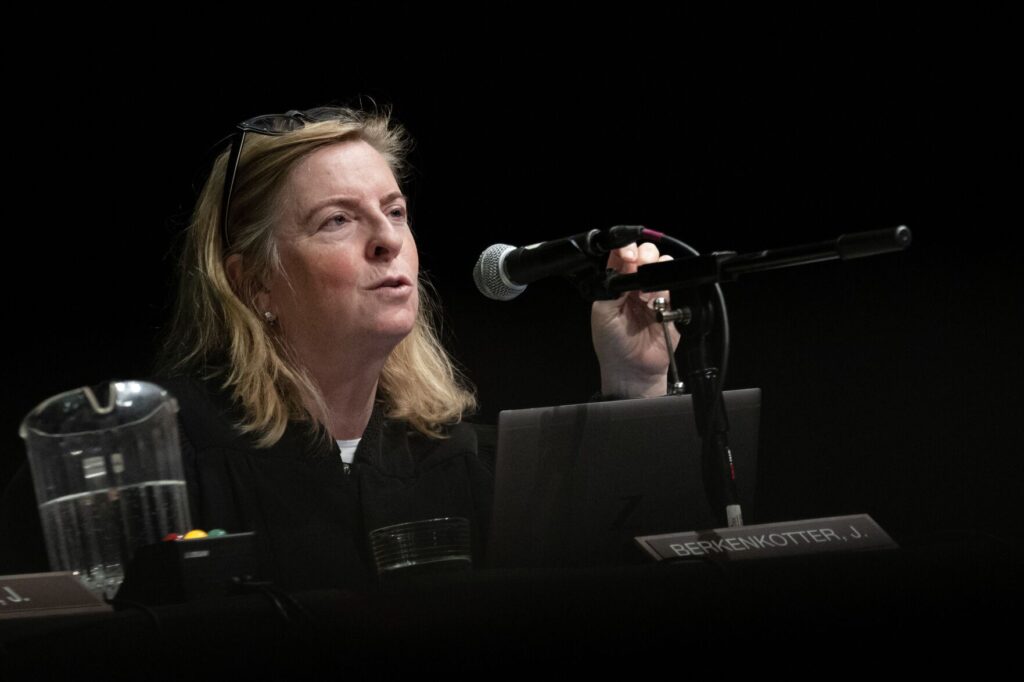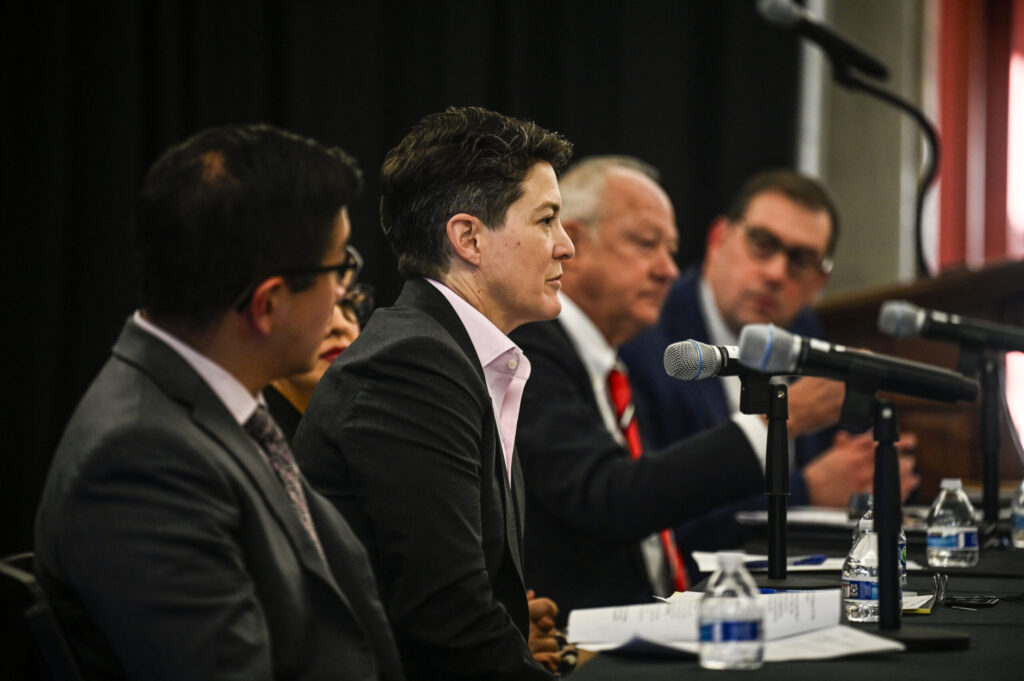Colorado justices rule plaintiffs can use open records law for evidence when suing government
The Colorado Supreme Court decided on Monday that nothing in the state’s open records law prevents a person from seeking documents from public entities at the same time they are suing the government in court.
Although the justices agreed that a plaintiff properly used the Colorado Open Records Act (CORA) to seek a tape recording from Archuleta County while he was engaged in litigation against the jurisdiction, the court split 5-2 as to its reasoning.
The majority noted CORA does not contain a prohibition against litigants submitting open records requests if they happen to be suing the same entity. In fact, certain language in the law suggested a plaintiff can perform both actions simultaneously, and the majority believed it impractical for the rules governing civil litigation to shut off CORA access depending on the situation.
“Even if we could, line-drawing problems would quickly emerge,” wrote Justice William W. Hood III in the Dec. 9 opinion. “Would a party who’s requesting documents for a separate purpose be precluded from doing so simply because they’re in litigation with the entity?”

Chief Justice Monica M. Márquez, writing for herself and Justice Carlos A. Samour Jr., argued it was sufficient to simply treat a request via the open records law the same as a request for evidence when it is the only documentation the plaintiff is seeking. Otherwise, she believed it unfair to afford plaintiffs unlimited access to evidence when the defendant is a government body.
“What is particularly unsettling about today’s ruling is that it results in an uneven playing field in litigation for state agencies and local government entities,” Márquez wrote. “Indeed, a private litigant could submit a flurry of CORA requests simply to overwhelm an opposing public entity during litigation, including on the eve of trial. The potential impact on public entities cannot be overstated.”
In the underlying case, attorney Matt Roane sued the Archuleta County Board of County Commissioners in October 2020, arguing it violated the requirements of Colorado’s open meetings law. To aid his case, he submitted a CORA request to the county clerk in December 2020 asking for a recording of a board meeting.
In response, the county wrote back to say the request was prohibited because Roane was effectively using CORA to circumvent the rules on the discovery of evidence. Roane then filed a lawsuit seeking to force disclosure of the meeting recording. A trial judge sided with Roane, prompting an appeal.

The Ralph L. Carr Colorado Judicial Center in downtown Denver houses the Colorado Supreme Court and Court of Appeals.
In December 2022, a three-judge Court of Appeals panel ruled Roane was allowed to get the recording through a CORA request, notwithstanding his status as a civil litigant. Judge Lino S. Lipinsky de Orlov observed that if clerk Kristy Archuleta was concerned about potential unfairness to the county, “her remedy is a petition to the General Assembly to amend CORA.”
“We further note that Archuleta’s argument would lead to the absurd situation in which a litigant seeking documents from a party-opponent under CORA would need to dismiss his or her pending action against the public entity,” continued Lipinsky, “submit a CORA request, and then refile the action after obtaining the requested documents.”
During arguments to the Supreme Court, Archuleta County Attorney Todd A. Weaver acknowledged Roane was not using his open records request as a means of evading limitations on the discovery of evidence. He also admitted that had Roane asked for the recording in the course of the litigation, Weaver would have turned it over.
Colorado Counties, Inc., which represents 62 of Colorado’s 64 counties, also weighed in on behalf of Archuleta to argue the Supreme Court should permit trial judges to manage litigants’ use of CORA at their discretion.
“As soon as you decide to initiate litigation and you subject yourself to the jurisdiction of the court,” said attorney Andrew D. Ringel, “you subject yourself to the rules.”
“You don’t give up your statutory rights, other rights that you have as a citizen,” countered Justice Richard L. Gabriel.

From left, Colorado Supreme Court Justice Monica M. Márquez, Chief Justice Brian D. Boatright and Justice William W. Hood III listen to an argument during a Courts in the Community session held at Pine Creek High School in Colorado Springs on Thursday, Nov. 17, 2022. (The Gazette, Parker Seibold)
The court’s decision mirrored the two competing principles that played out during arguments: Honoring the legislature’s intent that public records be open to inspection while not disadvantaging government defendants who must fulfill demands for evidence in addition to CORA requests.
Hood, in the majority’s opinion, concluded lawmakers could enact the type of exception Archuleta County hoped for, but the court could not manufacture one for them.
“Courts in Indiana, Tennessee, and Virginia have interpreted their states’ respective open records acts to permit an individual to request inspection from a public entity with which the individual is engaged in litigation,” he wrote. “By contrast, states that do have a pending-litigation exception put the statutory exception on the books.”
Márquez, in the concurring opinion, declined to compare Colorado to other states. Instead, she noted the state constitution gives authority to the Supreme Court to make rules about civil litigation. Márquez argued Roane’s request was permissible as an evidentiary matter, but she feared the majority’s decision would allow CORA to trump judges’ authority to manage litigation under those rules.
“The impact of today’s ruling is far-reaching. Although this case involves a single request for production of documents,” she wrote, “today’s decision will affect all civil litigation.”
Lawyers from the ACLU of Colorado, who argued to the Supreme Court in lieu of Roane, applauded the decision. Weaver, the Archuleta County attorney, said he was disappointed in the result.
“The only recourse left is to introduce legislation with the General Assembly to add a litigation exception to the Colorado Open Records Act as other states have done,” he said.
The case is Archuleta v. Roane.











